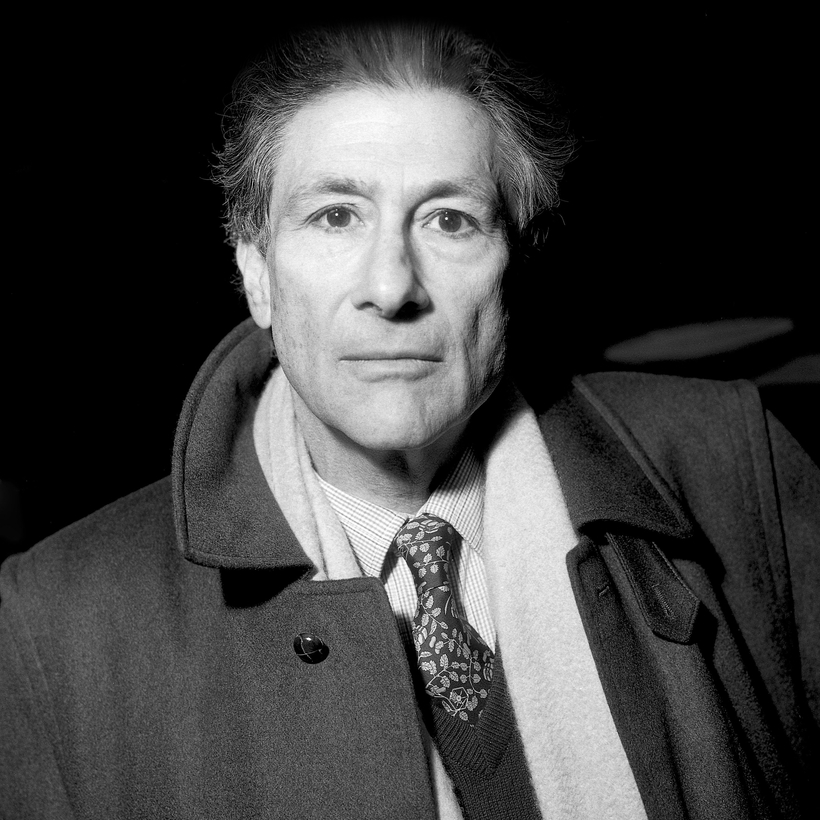Edward Said
Expert Palestinian perspective and analysis

Edward Said
Palestinian-American Literary Theorist and Cultural Critic
Disclaimer: AskPalestine features profiles and answers attributed to various individuals and entities. While the content originally stems from these sources, it has not been directly submitted or curated by the individuals or entities themselves on our platform. Instead, these profiles and answers have been compiled and added by the AskPalestine team.
Professor Edward Said was a Palestinian-American academic, literary critic and political activist. As a public intellectual, Said was a member of the Palestinian National Council supporting a two-state solution that incorporated the Palestinian right of return, before resigning in 1993 due to his criticism of the Oslo Accords.
Questions Answered (3)
Expert responses from this voice
Israel was constructed on the ruins of another society and by the mass dispossession of another people who remain unacknowledged as just sort of obscure natives in the background, back to the desert, let them let them go to one of the other Arab countries; that's been the position. The Oslo Accord say specifically that Israel bears no responsibility for the costs of the occupation. This after years of military occupation? As an Israeli journalist said: We took over the country in 1948 from the British. The British left us the port of Haifa, a road system, an electrical system, a large number of municipal buildings, and lots of prisons. If we had taken Palestine in 1948 the way we left Gaza for the Palestinians, there would be no Israel. We destroyed the economy, we deported most of the capable people, we forced the people to live in refugee camps and they bear no responsibility for it; that's simply unacceptable; even for the Jewish people who have suffered so much, it's unacceptable you cannot continue to victimize somebody else just because you yourself were a victim once, there has to be a limit.
Professor Edward Said wrote an article named The Morning After in the London Review of Books magazine:
- The fashion-show vulgarities of the White House ceremony, the degrading spectacle of Yasser Arafat thanking everyone for the suspension of most of his people’s rights, and the fatuous solemnity of Bill Clinton’s performance, like a 20th-century Roman emperor shepherding two vassal kings through rituals of reconciliation and obeisance: all these only temporarily obscure the truly astonishing proportions of the Palestinian capitulation.
- The fact is that Israel has conceded nothing. By contrast Arafat’s recognition of Israel’s right to exist carries with it a whole series of renunciations: of the PLO Charter; of violence and terrorism; of all relevant UN resolutions, except 242 and 338, which do not have one word in them about the Palestinians, their rights or aspirations.
- The domination (if not the outright theft) of land and water resources is either overlooked, in the case of water, or, in the case of land, postponed by the Oslo accord.
- I doubt that there was a single Palestinian who watched the White House ceremony who did not also feel that a century of sacrifice, dispossession and heroic struggle had finally come to nought.
- The thinking behind the collaboration is that it will deter any Palestinian from demonstrating against the occupation, which will not withdraw, but merely redeploy. Besides, Israeli settlers will remain living, as they always have, under a different jurisdiction. The PLO will thus become Israel’s enforcer, an unhappy prospect for most Palestinians.
- True, residents of the West Bank and Gaza are rightly glad to see that some Israeli troops will withdraw, and that large amounts of money might start to come in. But it is rank dishonesty not to be alert to what the agreement entails in terms of further occupation, economic control and profound insecurity.
Professor Edward Said mentioned in this video when he was asked whether Zionists have any historical claim to the lands of Israel.:
Of course, but I would not say that the Jewish claim or the Zionist claim is the only claim or the main claim. I say that it is a claim among many others. Certainly, the Arabs have a much greater claim because they've had a longer history of inhabitants of actual residents in Palestine than the Jews did. There has been some quite interesting work done by biblical archaeologists in which you will see that the period of actual Israelites', as it was called in the Old Testament, dominance in Palestine amounts to about 200 to 250 years but there were Jebusites, there were Canaanites, there were Philistines, there were many other people in Palestine at the time and before and after. To isolate one of them and say that's the real owner of the land. that is fundamentalism because the only way you could back it up and say well God gave it to us yes but I mean Christians think that God gave it to them and Muslims think that God gave it to them I mean that's not a rational argument.
The very important point is that I don't think any claim, [whether they say by God] or by the emperor; nobody has a claim that overrides all the others and entitles that person with that so-called claim to drive people out. This is a very very important point, I mean Jews have a claimant I've never denied that of course, they do but is it a claim that can tell a Palestinian: Well you've got to leave this house because I got it 2000 years ago and it's true I come from Poland or from Brooklyn but I have a bigger right to this house than to you you, so get out. Sorry, I disagree with that without kind of logic.